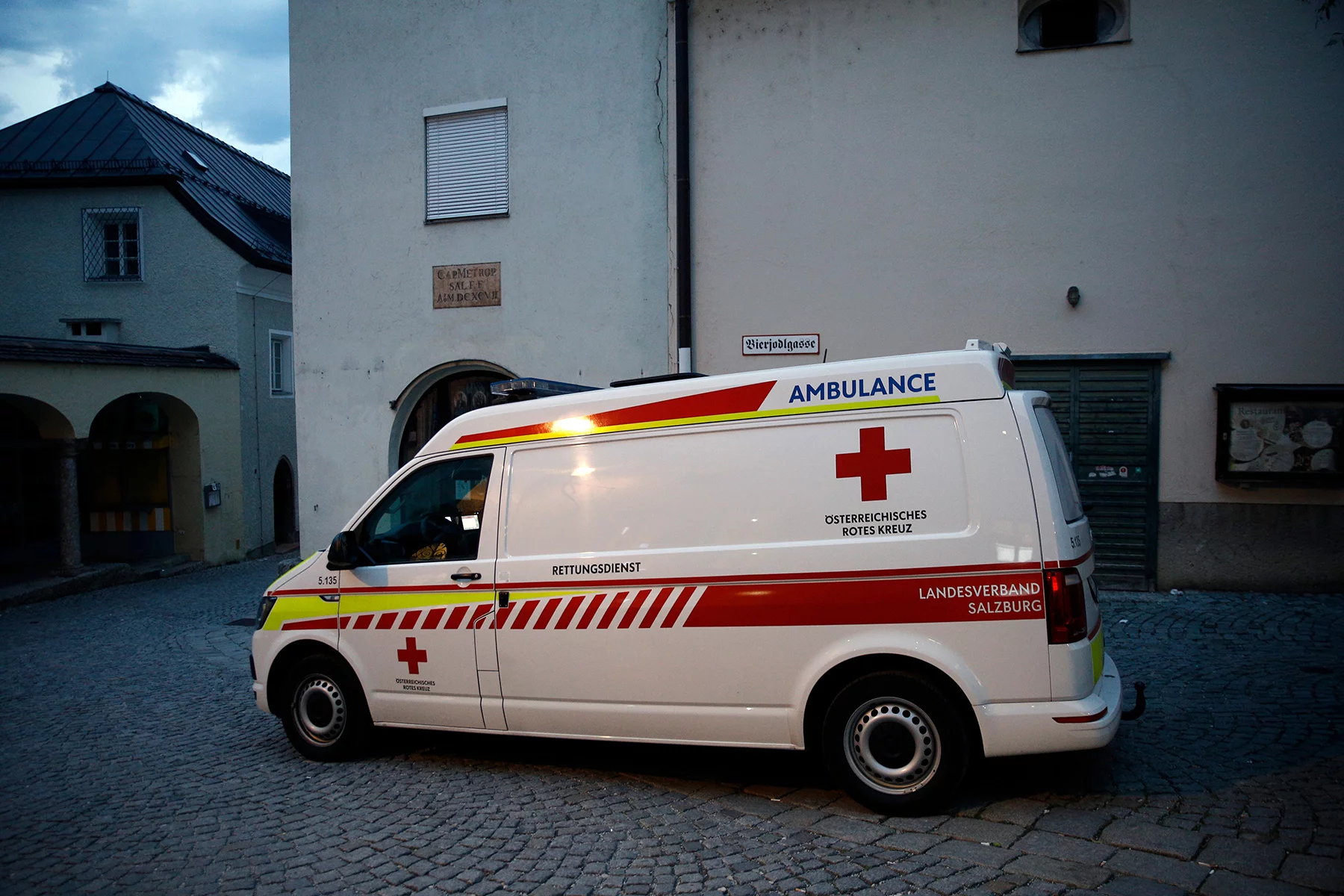Fortunately for expats, Austria boasts one of the best healthcare systems in Europe. In fact, it was ranked ninth in Europe in the Euro Health Consumer Index in 2018. This is largely due to the fact that hospitals in Austria offer universal coverage, making them an ideal place to receive treatment. Notably, the country has an inclusive system, coupled with high-quality care and access to top physicians. Furthermore, with a wide variety of specialists and mental health professionals, you know you are in safe hands when receiving care.
To help you navigate the hospital system and ensure you receive the best care, this guide provides the following information:
- Hospitals in Austria
- How to access hospital treatment in Austria
- Emergency treatment in Austria
- Hospital stays in Austria: what to expect
- Hospital costs in Austria
- Being discharged from hospitals in Austria
- Visiting someone in a hospital in Austria
- The best hospitals in Austria
- List of hospitals in Austria
- Useful resources
Hospitals in Austria
Austria operates a two-tier healthcare system which means that all individuals receive publicly funded care. However, they also have the option to purchase supplementary private health insurance. The healthcare system provides free access to basic healthcare to all its citizens and residents. Remarkably, Austria also services tourists with free basic healthcare, including temporary visitors to the country.
Basic healthcare includes treatment in public hospitals, basic dental services, medication, and even some specialist consultations. Importantly, those holding a European Health Insurance Card (EIHC) may use it in Austria.
Austria’s healthcare system is fairly complex. For instance, it consists of cross-stakeholder structures at federal, Länder (state), and local government levels. As far as hospitals are concerned, the passage of laws and their implementation rests with the nine provincial governments.
In 2023, Austria had over 260 hospitals in total (227 public and 35 private). Of those, 90 were general, and 121 were specialist hospitals.
Public vs private hospitals
Austria has both public and private hospitals, and your doctor can refer you to either one.
At public hospitals, patients are typically treated at general care units (Allgemeine Gebührenklasse), which is fully covered by public health insurance. However, public hospitals also have a special class (Sonderklasse) that provides enhanced comfort and amenities, such as private rooms. This requires patients to pay out-of-pocket or private coverage.
In addition to public hospitals, Austria also has private hospitals that offer higher levels of comfort and flexibility during in-patient treatment. Again, these services require payment from either the patient or private health insurance.

Sebastian Arthofer
Krankenversichern
Insider tip: Private hospital rooms
If you plan to go to a private hospital or Sonderklasse unit, remember to bring your insurance policy number. This is essential for direct billing between the hospital and your insurer, ensuring a smooth process without requiring upfront payment. That is, if your contract does not include a deductible.
How to access hospital treatment in Austria
Fortunately, everyone in Austria has access to hospital treatment. If you are a working resident of the country, you will have automatically been issued with an e-card (health insurance card). If you need to go to the hospital, it is important to remember to take your e-card along with you. This enables you to access medical services without payment in advance.
Emergency treatment in Austria
Under the complex structure of Austria’s healthcare system, each local authority provides emergency care. As a result, there are some differences between the different states within the country. In spite of this, response times across Austria are very good.

Furthermore, hospital staff throughout the country will generally speak good English. However, paramedics tend to speak German, principally.
Everyone in Austria is entitled to emergency medical care. Furthermore, this includes tourists and other visitors. Therefore, as a tourist or expat, it is important to take note of the following numbers in the event of a medical emergency:
- 144 – ambulance
- 141 – emergency medical service
- 112 – European emergency number
Hospital stays in Austria: what to expect
It’s important to note that due to the high standard of care provided to everyone in Austria, you will likely face longer waiting times if you are restricted to only public healthcare. As a result, you may need to share a hospital room with as many as nine other patients.
With this in mind, you may be tempted to take out private health insurance. There are many private health insurance providers in Austria, all of which are regulated by the Financial Market Authority.
Expats in Austria can also make use of private international health insurance. These insurers offer coverage in Austria and abroad. The leading groups are:
Both offer a range of plans to suit all people and situations. Generally, the older you are the more you will pay. For example, a plan for children below 18 could cost around €30 per month. However, the same plan for someone above 65 may cost as much as €450 to €500 per month. Additional factors include both gender and pre-existing conditions.
Generally speaking, your insurer should cover the costs for the time in a special ward. In most instances, for instance, the private health insurer will pay the hospital directly. Typically, private insurance tends to cover access to smaller wards in private hospitals and easier access to elective doctors. That said, it is standard in Austrian hospitals, both public and private, to have access to modern facilities and state-of-the-art technology.
Hospital costs in Austria
If you are employed in Austria, you are eligible for all basic hospital care in the country. Indeed, as an expat living in Austria, it is important to understand the relationship between employment and healthcare coverage; for both yourself and your family.
Health insurance for hospital costs in Austria
In Austria, public health care enrollment and health insurance are automatic and linked to employment. This is because employers register an employee and the government directly deducts health insurance tax from the individual’s salary. Those who are self-employed can also enroll themselves.

Health insurance is also guaranteed for spouses and dependents. It is also provided to students, pensioners, the disabled, and those on unemployment benefits. Co-insurance is also non-contributory for children, as well as individuals who care for the children; for example, a non-working partner. Moreover, public insurance costs are based on income. As a result, they are unrelated to an individual’s medical history.
For outpatient visits, you can expect to pay between 10 and 20% of the overall cost. However, there is a cap on self-employed workers which limits the charges to 5% of their net annual income. For medical aids such as wheelchairs, the coverage is typically up to €1,328.
Typically, health insurers settle treatment costs directly, but there are some specific treatments that may require additional costs. However, if in doubt, it’s best to check with your doctor.
You can supplement your public insurance with ‘Special Class’ private health insurance. In addition to giving you privacy in hospital rooms, this will grant you access to a private bathroom, internet, and other perks.
Being discharged from hospitals in Austria
The time of your discharge will vary between hospitals and regions. That said, generally speaking, it will be decided in discussion with your attending doctor.
After ward visits, a doctor may discharge you on any day of the week, including Sundays and public holidays. After discharge from the hospital, you should receive your medical report within one to two weeks. It may also include appointments for follow-up examinations.
Visiting someone in a hospital in Austria
Due to the current situation regarding COVID-19, visiting hours for public hospitals in Austria have changed. For instance, at the time of writing, they are restricted to between 15:00 and 18:00. Accordingly, the last entry is 17:30.

Typically, public hospitals such as Vienna General Hospital (AKH) allow only one visitor per patient per day. However, all visitors must complete a visitor datasheet and register at the station beforehand.
Importantly, visits are not permitted by people who have suspected symptoms of COVID-19. Furthermore, a declaration of your state of health must now be completed upon entry. Ordinarily, both public and private hospitals offer flexible visiting hours.
The best hospitals in Austria
You can use Bookimed to find the best hospitals in Austria. This free global platform provides hospital ratings based on reviews from real patients. According to the platform, the top three hospitals in Austria are:
Wiener Privatklinik
- Located in Vienna
- This is a private hospital in close proximity to the University Hospital
- The hospital is renowned for its state-of-the-art equipment. It is also home to the first private radiation therapy center in Austria.
Wiener Privatklinik, Pelikangasse 15, 1090 Vienna
Vienna General Hospital (AKH)
- Located in Vienna
- One of the most innovative clinics in Europe
- Established over 300 years ago
- Includes over 42 university hospitals and institutes, 6 own laboratories, and 10,000 employees
- High standards and innovative technologies in all fields of medicine
- Considered “a city in a city”, AKH features specialized medical centers, shops, restaurants, and banks.
Vienna General Hospital (AKH), Währinger Gürtel 18-20, 1090 Vienna
Döbling Private Clinic
- Located in Vienna
- As the name suggests, this is a private hospital
- Included in The Globe’s Best Hospitals list by Forbes
- The clinic holds ISO Certifications and the Austrian Mark of Quality in Health Tourism; these guarantee the quality and safety of treatment.
Döbling Private Clinic, Heiligenstadter Strasse 57, 1190 Vienna
You can also check the Ranking Web of World Hospitals to find the best hospitals and clinics in Austria.
List of hospitals in Austria
Upper Austria
- Allgemeines Krankenhaus der Stadt Linz
- AUVA Unfallversicherungsanstalt
- Krankenhaus der Barmherzigen Schwestern Linz
- Krankenhaus der Elisabethinen GmbH
- Samariterbund Linz
- Unfallkrankenhaus Linz
Salzburg
- Krankenhaus Barmherzige Brueder Salzburg
- Landeskrankenhaus Salzburg
- Privatklinik Wehrle
- Unfallkrankenhaus Salzburg
Styria
- Accident Hospital Graz
- Hospital of the Barmherzigen Brueder Graz
- Privatklinikum Hansa
- Regional hospital Graz West
Vienna
- AKH
- Krankenanstalt Rudolfstiftung
- Krankenhaus der Barmherzigen Brueder
- Privatklinik Doebling (Verband)
- St. Anna Kinderspital
- Unfallkrankenhaus Wien – Lorenz Böhler
Additionally, you can see the full list of hospitals in Austria.
Useful resources
- oesterreich.gv.at – national government portal with information on healthcare and emergencies






